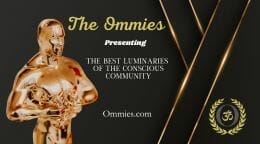The Problem with Making Assumptions

We all make assumptions. We do it all the time. These assumptions can be about pretty much anyone or anything.
It’s so easy to think that we know what’s going on in someone else’s head. It’s no problem for us to imagine that we understand why a person has taken a particular course of action. We don’t really know; we make a guess based on our imagination, past experiences or wishful thinking.
It’s also no big deal for us to decide, arbitrarily, why an event has taken place. We don’t base this decision on observable evidence or factual knowledge; we just make the decision and believe it, as if it were fact.
The problem with making these types of assumptions, and we all do it, myself included, is that more often than not, we’re wrong. We assume that a person has a specific motivation for their actions or that an event took place for a specific reason. Then we start to see these incorrect assumptions as the truth.
A lot of damage can be done by confusing our assumptions with the truth. A husband can assume that his wife is being unfaithful, and accuse her with so much conviction that he destroys her love for him; a politician can assume that another world leader is hostile to her cause, and can ruin a long-held and mutually beneficial alliance between their two countries.
We make all sorts of assumptions every day. Some are trivial, others are potentially devastating. Almost every single one of them is faulty.
So why do we do this? I think that it’s part of human nature to base our understanding of other people and the world, not just on the facts we observe but to a greater or lesser extent on what what’s going on inside us, psychologically.
Instead of basing our understanding of people and events on what we observe and what we know for a fact, we often prefer to make judgments based on our emotions, beliefs, expectations and wishes.
We too easily confuse these psychological mechanisms with reality, and the assumptions that spring from them become the basis of our own version of “reality,” even though it’s not actually real.
We don’t recognize just how much our inner world is coloring the way we see and understand our outer world, and how it distorts things for us. When making assumptions becomes a habit, we are less and less grounded in reality and more and more prone to creating problems for ourselves and others.
So, how to we stop making so many assumptions and start basing our understanding of people and the world on more tangible facts? We simply pause as we’re jumping to our conclusions and ask ourselves, “How do I know this?”
If the answer to that question is anything other than “I learned it through observing the evidence or through obtaining factual information,” then we’re at risk of making an incorrect assumption.
If we just stop and do our own fact-checking before deciding that we know something, we’ll avoid the trap of false assumptions and most likely prevent a lot of unnecessary difficulties for ourselves and others.
Click HERE to Connect with your Daily Horoscope!
About the Author
Marcia Sirota MD FRCP(C) is a board-certified psychiatrist, that does not ascribe to any one theoretical school. Rather, she has integrated her education and life experiences into a unique approach to the practice of psychotherapy. She considers herself a realist with a healthy measure of optimism. Sign up here for her free monthly wellness newsletter. Listen here to her latest podcast. mariasirotamd.com
Dr. Marcia Sirota is a Toronto-based board certified psychiatrist specializing in the treatment of trauma and addiction, as well as founder of the Ruthless Compassion Institute, whose mandate is to promote the philosophy of Ruthless Compassion and in so doing, improve the lives of people, everywhere.










